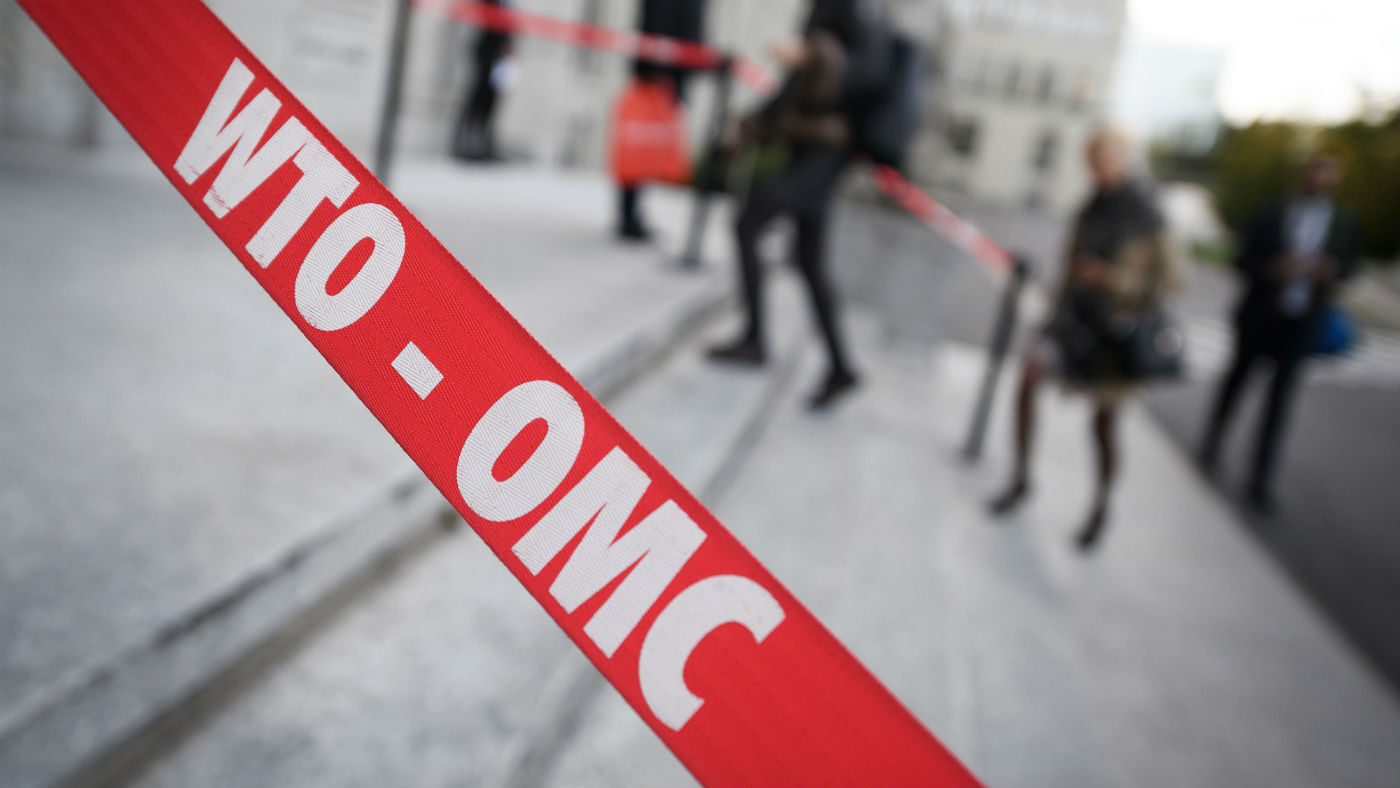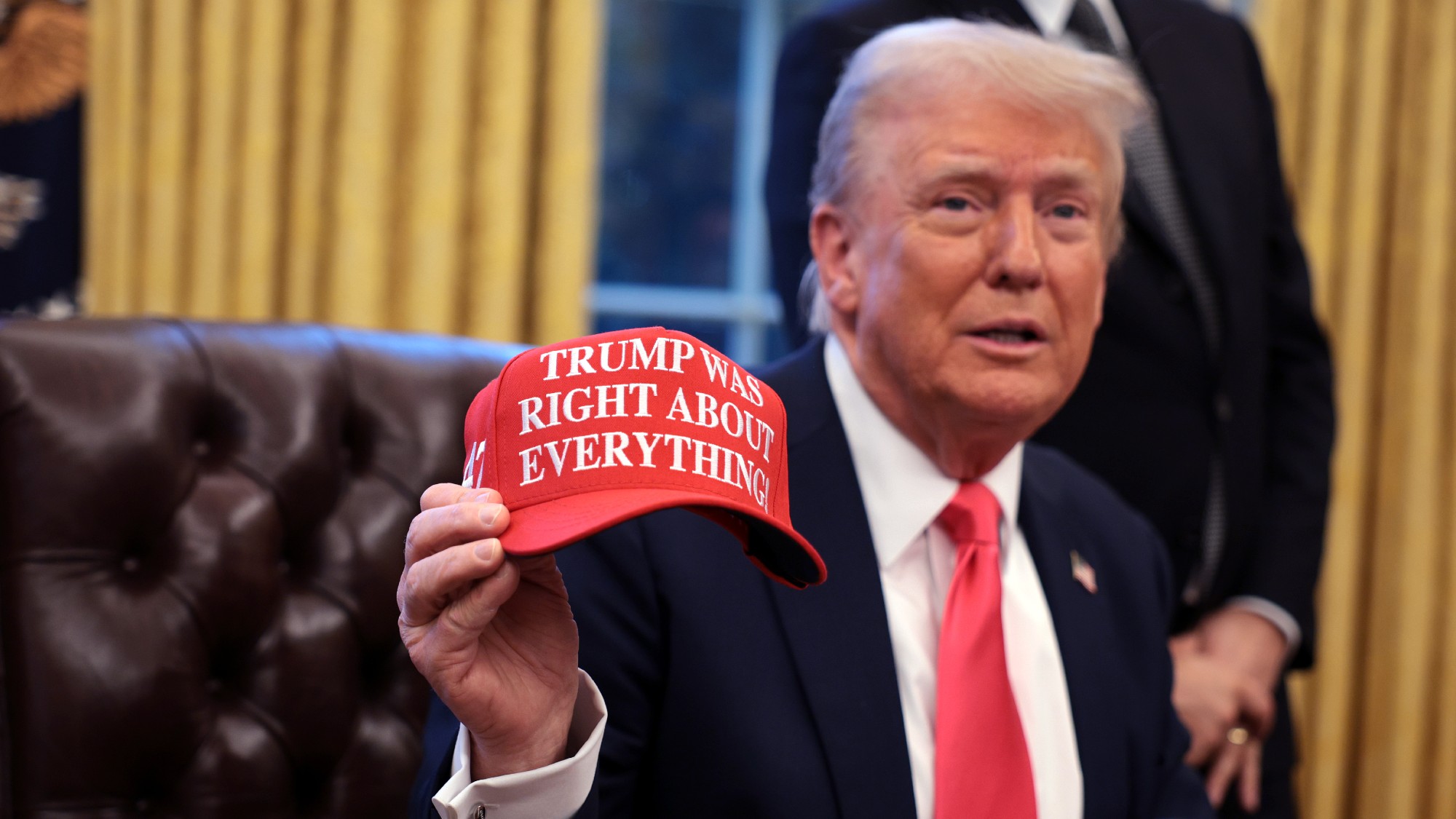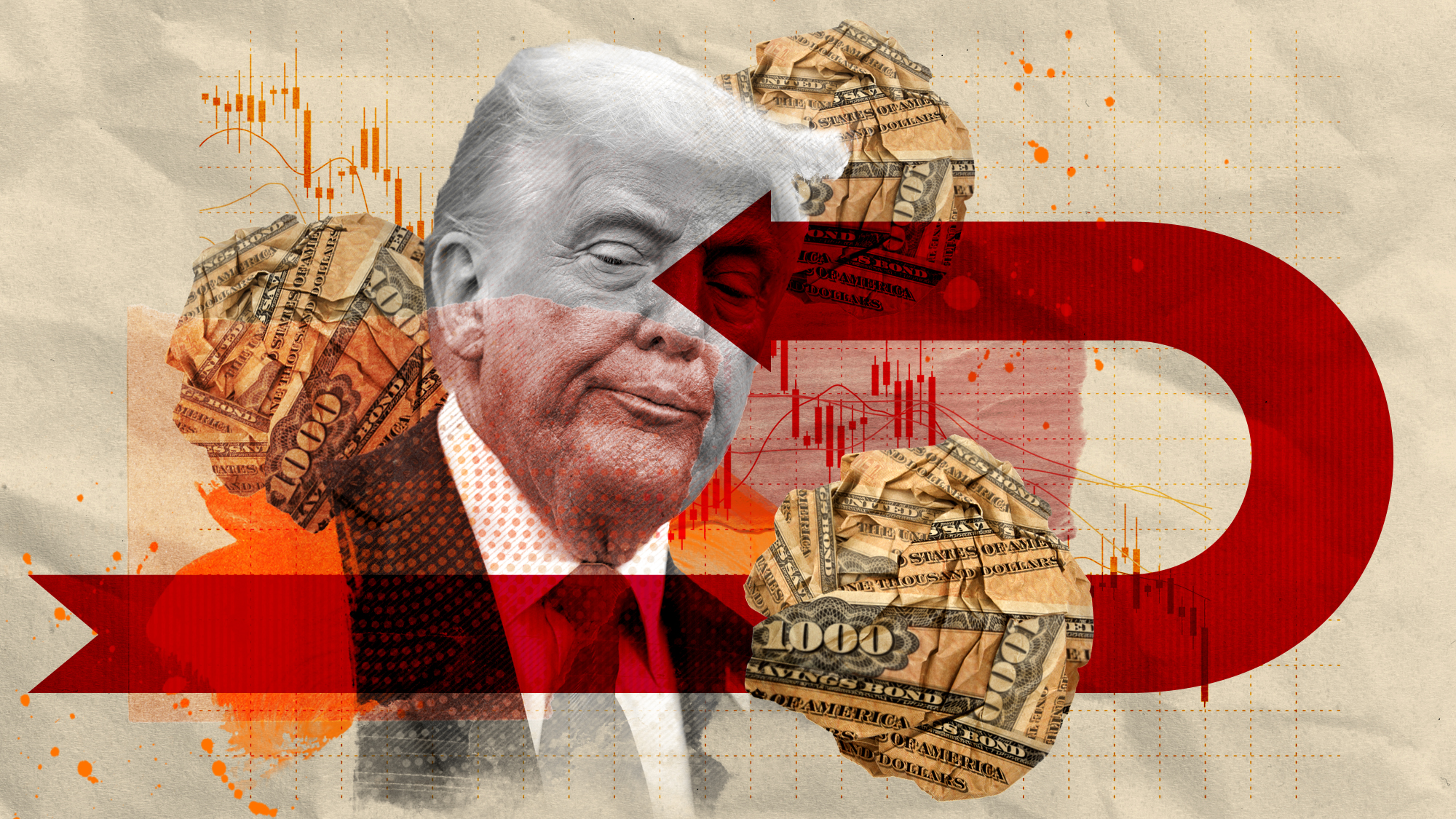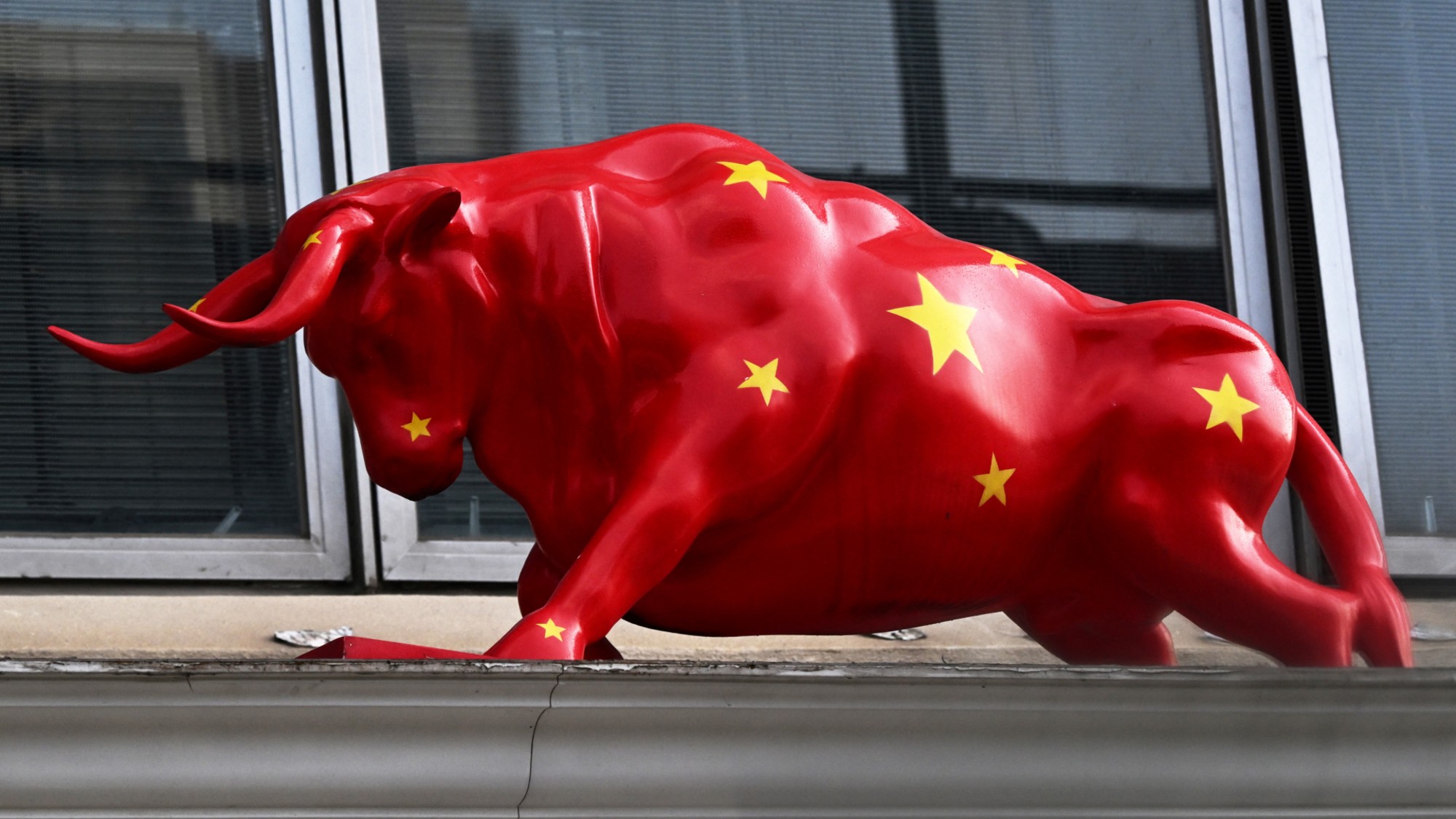WTO to suffer heavy blow as US hinders appeals court
Final forum for global trade disputes to shut after US blocks appointment of new judges

A free daily email with the biggest news stories of the day – and the best features from TheWeek.com
You are now subscribed
Your newsletter sign-up was successful
The World Trade Organization (WTO) is set to lose its system for resolving disputes between members, with huge implications for global trade and how deals are mediated in the future.
Described by former director general Pascal Lammy as the WTO’s “crown jewels”, the Appellate Body has been likened to a Supreme Court for global trade.
Yet despite its role as the final appeals forum for international disputes, it is set to close its doors tomorrow after the United States blocked the appointment of two new judges to sit on its seven-person panel.
The Week
Escape your echo chamber. Get the facts behind the news, plus analysis from multiple perspectives.

Sign up for The Week's Free Newsletters
From our morning news briefing to a weekly Good News Newsletter, get the best of The Week delivered directly to your inbox.
From our morning news briefing to a weekly Good News Newsletter, get the best of The Week delivered directly to your inbox.
“Perhaps the biggest issue is that the US accuses the WTO dispute system of ‘judicial overreach’ - essentially that it interprets the WTO rules in a way that creates new obligations for WTO members”, reports the BBC.
One area that particularly grates in Washington is dumping, when a foreign supplier sells goods abroad more cheaply than at home. The US has even threatened to close down the WTO altogether by blocking its budget, although it has rowed back from that threat.
At a time when US president Donald Trump is in a damaging trade battle with China, and after Trump just days ago threatened France with 100% wine tariffs in retaliation for President Macron’s new digital tax, “the 164-member body is losing its ultimate referee on international trade at the worst possible time”, says the Daily Telegraph.
The Guardian reports that “unless Donald Trump backs off at the last minute and agrees to a peace plan, Washington’s protracted battle to safeguard US sovereignty will lead to the neutering of the WTO’s ability to police global trade”.
A free daily email with the biggest news stories of the day – and the best features from TheWeek.com
–––––––––––––––––––––––––––––––For a round-up of the most important business stories and tips for the week’s best shares - try The Week magazine. Start your trial subscription today –––––––––––––––––––––––––––––––
This would plunge the Geneva-based organisation “into the biggest crisis in its 25-year history”, says the paper, leading to “a backlog of unresolved disputes and mak[ing] it easier for countries to break WTO trade rules without facing penalties”.
“Moreover, this could have uncomfortable implications for the UK, particularly if it leaves the EU without a trade deal at the end of 2020, as promised by the Conservative Party’s election manifesto”, says the Telegraph.
The newspaper adds that “if the UK were to take a dispute with the EU to the WTO, it has no recourse to appeal an unfavourable panel decision”.
“The UK is choosing a particularly difficult time to extricate itself from its regional trading bloc and try to seek out its own path in this global trading system, which is fraying at the edges”, says Sam Lowe, a trade expert at the Centre for European Reform.
Marianne Schneider-Petsinger, an international trade expert and fellow at Chatham House, was more blunt. “In an environment where the WTO dispute settlement system isn’t fully functioning, it's going to be much more difficult and uncertain to enforce the UK’s rights”, said Schneider-Petsinger.
“Is it really wise for the UK to use the WTO as its key platform in a world where the WTO is under threat?”
-
 5 blacked out cartoons about the Epstein file redactions
5 blacked out cartoons about the Epstein file redactionsCartoons Artists take on hidden identities, a censored presidential seal, and more
-
 How Democrats are turning DOJ lemons into partisan lemonade
How Democrats are turning DOJ lemons into partisan lemonadeTODAY’S BIG QUESTION As the Trump administration continues to try — and fail — at indicting its political enemies, Democratic lawmakers have begun seizing the moment for themselves
-
 ICE’s new targets post-Minnesota retreat
ICE’s new targets post-Minnesota retreatIn the Spotlight Several cities are reportedly on ICE’s list for immigration crackdowns
-
 What a rising gold price says about the global economy
What a rising gold price says about the global economyThe Explainer Institutions, central banks and speculators drive record surge amid ‘loss of trust’ in bond markets and US dollar
-
 Is Trump's tariffs plan working?
Is Trump's tariffs plan working?Today's Big Question Trump has touted 'victories', but inflation is the 'elephant in the room'
-
 Trump is trying to jump-start US manufacturing. Is it worth it?
Trump is trying to jump-start US manufacturing. Is it worth it?Today's Big Question The jobs are good. The workers may not be there.
-
 What is the dollar's future after Moody's downgrade?
What is the dollar's future after Moody's downgrade?Today's Big Question Trump trade wars and growing debt have investors looking elsewhere
-
 How the US bond market works – and why it matters
How the US bond market works – and why it mattersThe Explainer Donald Trump was forced to U-turn on tariffs after being 'spooked' by rise in Treasury yields
-
 Why does the US need China's rare earth metals?
Why does the US need China's rare earth metals?Today's Big Question Beijing has a 'near monopoly' on tech's raw materials
-
 Who would win in a China-US trade war?
Who would win in a China-US trade war?Today's Big Question Tariff pain will be higher for China but Beijing is betting it can weather the storm
-
 Are free trade zones and alliances the answer to Trump's tariffs?
Are free trade zones and alliances the answer to Trump's tariffs?Today's Big Question Temptation is to retaliate with trade barriers, but most agree nations should focus on targeted trade pacts and strengthening cooperation